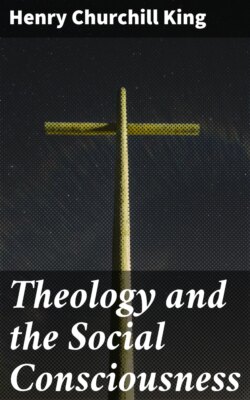Читать книгу Theology and the Social Consciousness - Henry Churchill King - Страница 7
На сайте Литреса книга снята с продажи.
I. THE SENSE OF THE LIKE-MINDEDNESS OF MEN[1]
ОглавлениеIf a society is "a group of like-minded individuals," if the "all-essential" requisites for coöperation are "like-mindedness and consciousness of kind," as Giddings tells us, then certainly a prime element in the social consciousness is likeness and the sense of it—a growing sense of the mental and moral resemblance and "potential resemblance" of all men, and of all classes of men, though not equality of powers.
"Equality of need" among men, too,[2] to which sociology comes as one of its surest conclusions, implies a common capacity, even if in varying degrees, to enter into the most fundamental interests of life, and so points unmistakably to the essential likeness of men in the most important things.
So, too, sociology's unquestioning assertion that both smaller and larger groups of men constantly tend toward unity, assumes potential resemblance.
And the uniform experience and prescription of social workers, that really knowing "how the other half lives" brings increasing sympathy, also affirm the fundamental likeness of men. Every painstaking investigation of a social question comes out at some point or other with a fresh discovery of a previously hidden, underlying resemblance between classes of men.
From the careful, inductive study of social evolution, too, the men of our day see, as no other generation has seen, that the great force always and everywhere at work in that evolution has been likeness and the consciousness of it.
For all these reasons, this generation believes, as men never believed before, in the essential like-mindedness of men; and this deepening sense of the like-mindedness of men is certainly one element in the modern social consciousness.
